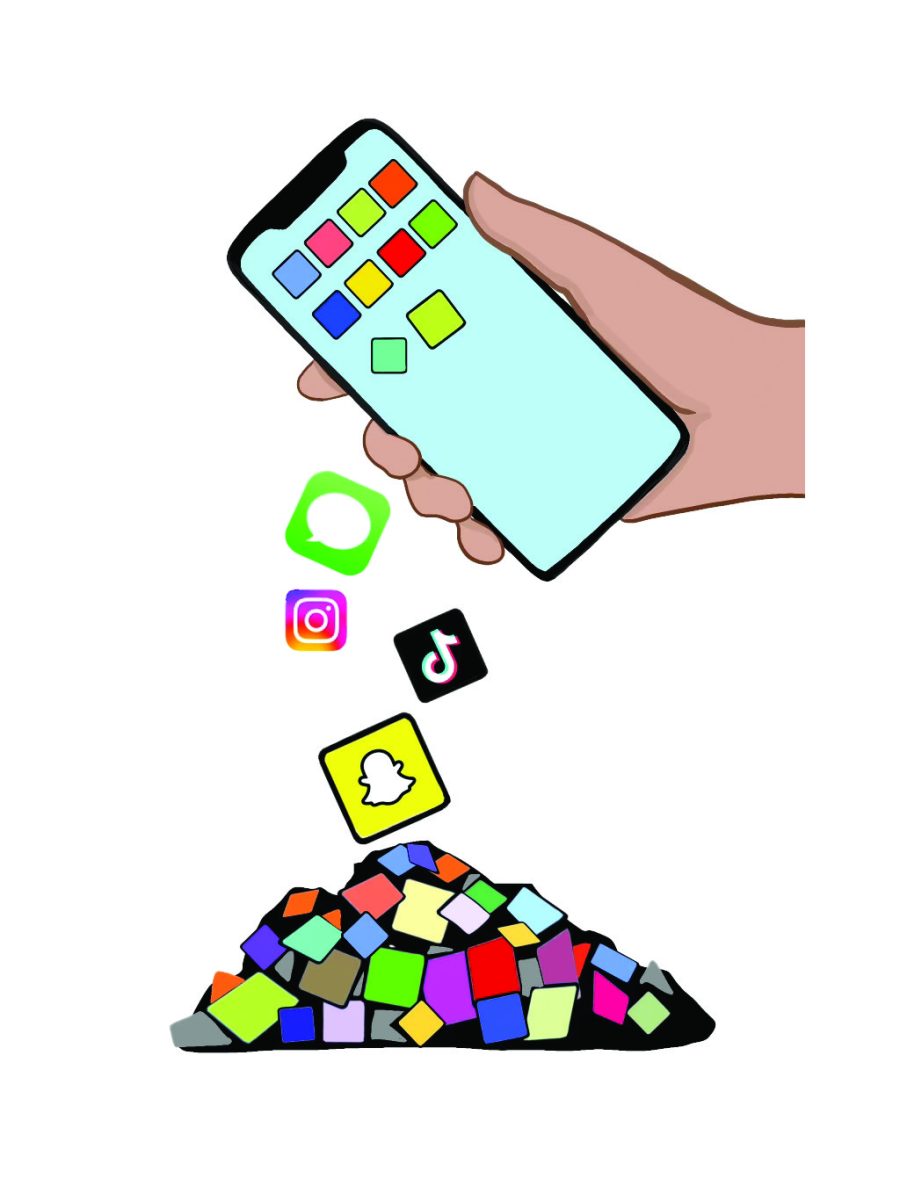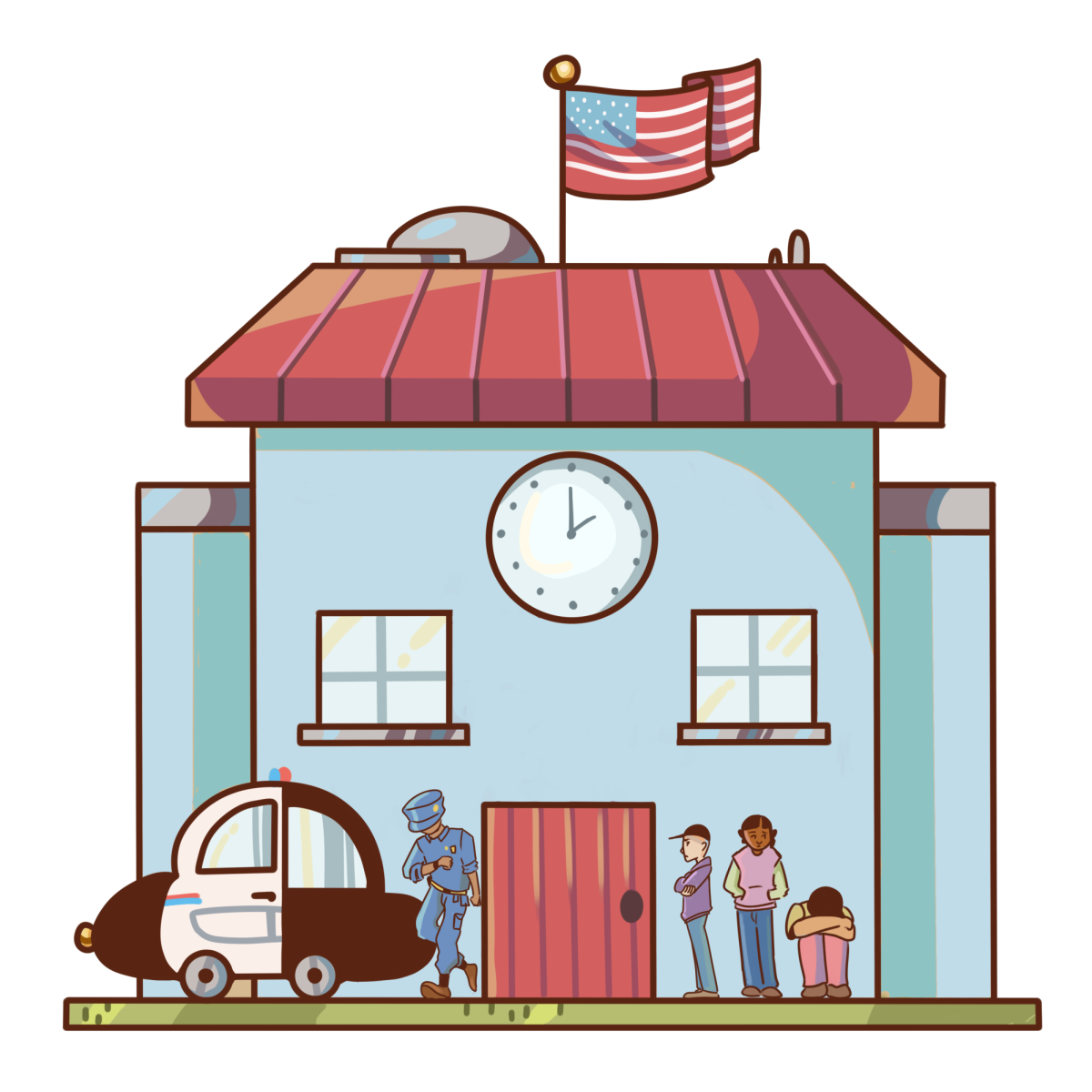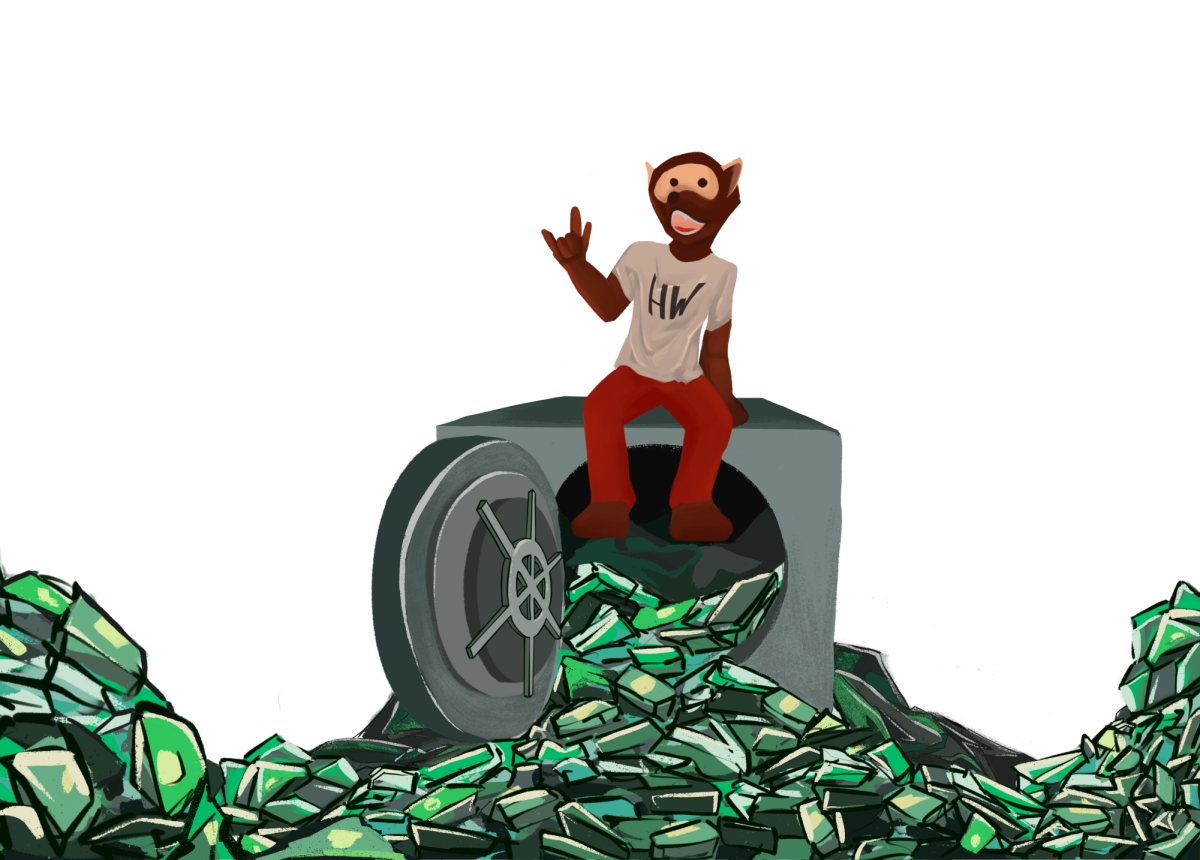
It was the beginning of the school year. Nora* had been hanging out with a male student, Reggie*, for a while and started to catch feelings. Another guy that she previously had relations with decided to tell Reggie that he should stop hanging out with her because she was a sl*t. Nora was very surprised and confused. She felt that she had not done or said anything to make herself seem like a sl*t. Nora said she began to question her actions, and that other girls face similar backlash about their relations with guys.
“[Often], something will happen at a party and you’ll go to school the next and people will say, ‘Oh she’s such a sl*t,’” Nora said. “It sucks. I’ve had a lot of close guy friends call me a sl*t, and they think they can say that because they’re friends with me. The double standard is insane. I know that some of the people who’ve called me a sl*t actively cheat on their girlfriends. I don’t understand why I deserve this when they’re doing objectively sl*tty things.”
Sl*t-shaming is when someone accuses another of being too sexual by targeting them in a way that has negative connotations. Examples can include calling someone a sl*t, scrutinizing what they are wearing, talking negatively about someone for having sex and more, according to Planned Parenthood. Its two main effects are sexualizing females and trying to control the way they dress or act.
Selena*, another student, said she has felt shamed by many different people at school for the way she handled a situation with two male peers.
“I had gotten with this guy multiple times and then the next weekend, I got with a different guy,” Selena said. “When I got to school on Monday, I felt really pressured by a lot of people, including my close friends and people I didn’t really know, to choose one guy or the other. I had never experienced a situation where people don’t let others live their lives how they want, meaning that people who aren’t a part of it care more than the people in it.”
Selena said that sometimes she shames other girls without realizing it.
“I’m sure that I have an implicit bias about shaming girls, especially due to how our culture is,” Selena said. “The way that I can check myself is I will replace the girl with a guy or vice versa in situations and see how my reaction would change. I think that sl*t generally will always have a negative connotation while the term ‘man wh*re’ is sometimes a joke and doesn’t really affect a guy’s reputation. If a girl is a sl*t, it does affect their reputation because girls and guys see them different.”
There are many words still in use today that are used to shame women, but Selena said the implications of these words have evolved over time.
“I find it really interesting how the word c*nt is now gaining popularity whereas it used to be one of, if not the most, derogatory terms to describe women,” Selena said. “I think the media has made c*nt seem the same as saying sl*t or wh*re. TikTok specifically has a huge influence over our vocabulary.”
There are numerous ways that sl*t-shaming can directly affect a person. Some examples include body image issues, guilt, sexual anxiety and low self-esteem, according to Choosing Therapy.
Elle* said that she notices students at the school saying negative things about her and her friends in regards to their interactions with guys at the school.
“I know that there are groups of people who call my friends sl*ts, and we get shamed for it,” Elle said. “They’ll say things like, ‘Oh, you and your friends get with so many guys.’ It’s more of silent judgments, less face to face interactions. I know and hear of it happening behind my back. I don’t want to have to explain myself to [other] people [and students].”

Upper School History and Gender Studies teacher Lilas Lane said that sl*t-shaming has changed drastically since she was growing up.
“I wasn’t conscious of [sl*t-shaming] in the way that you guys are now,” Lane said. “One of the big differences between my generation and your generation is social media and the prevalence of the internet. You’re so much more aware of things because you’re being bombarded with somebody’s takes. I’ll watch shows from the ’80s now and I’m just like, ‘Oh, my God, it was so sexist.’ You just didn’t even notice it then and weren’t as aware of those things as you guys are now.”
Lane said that it is difficult to find a solution for being sl*t-shamed because women often receive the blame.
“I don’t think the solution is for us to continue to condemn women for something that we don’t condemn men for,” Lane said. “There’s an issue that is different from when I was younger and that is this idea that women owe men sex. It’s always been problematic, but now I think there’s also sort of this pressure to sleep with people to take agency. At the same time, you’re going to be blamed for it and it’s gonna be a place of vulnerability. Then if you don’t, that’s also condemned. People can say, ‘Oh you’re a prude.’ From what I’ve noticed, being a prude has become much more intense than it was when I was young. It puts people in a really weird no-win situation.”
Lane said it is hardest to hear and see of girls shaming other girls for things they have done.
“One of the things that I really find problematic is when women call other women sl*ts,” Lane said. “I really struggle with that, and it’s always been there and always existed. We called each other sl*ts for fun, and that was a word that we used as an affectionate term back in the day. It’s almost like you’re claiming the word that somebody is going to call you in a very harsh and derogatory way, and you’re going to diffuse it of his power. It was all in fun and play. But that’s different to me than the type of vitriol that gets aimed at girls for whatever reason that is much more of a hostile kind of thing.’I don’t like her because she’s beautiful, or I don’t like her because she flirts with guys.’ That’s a vulnerability, even if it has nothing to do with what she’s actually doing. It’s a vulnerability that can be used to hurt someone.”
Olivia Suddleson ’24 is a co-leader of Students Against Sexual Violence (SASV), which educates students on sexual violence, prevention, consent and more. Suddleson said she has noticed a correlation between sl*t-shaming and victim-blaming.
“When we think about sl*t-shaming, it’s really about putting somebody else down for being sexual or for doing things that are considered sexual,” Suddleson said. “That’s an inherent bias that we have as a society because we live in a patriarchal society where we inherently put men above women. Not that sexual violence or such shaming is exclusive to women, but there’s definitely a disproportionate amount of it.”
Suddleson said people need to educate themselves in order to prevent unintended sl*t-shaming from taking place.
“[Sl*t-shaming] has definitely become more taboo and frowned upon especially since the MeToo movement and things like that,” Suddleson said. “A lot of it is also education and teaching people what we do in SASV. Teaching people about consent and sexual violence and being aware of terms like harassment, assault and rape. Also it’s understanding that we live in 2024 and we can’t continue to shame people for expressing themselves in various ways. If you’re just a person living your life, you don’t deserve to be shamed.”
Jacob Massey ’25 said that shaming someone, especially calling someone a sl*t, is not the right thing to do.
“Shaming is not effective, even if we were to assume that being a sl*t was bad, which I do not concede, it is not an effective way of getting someone to stop doing something,” Massey said. “I know guys that have been sl*t shamed but I do feel like there is a double standard. If you’re a sl*t, that just means you’re hot and you get guys or girls. It’s really a compliment and it’s really the patriarchy that tells us it’s not actually a compliment.”



































